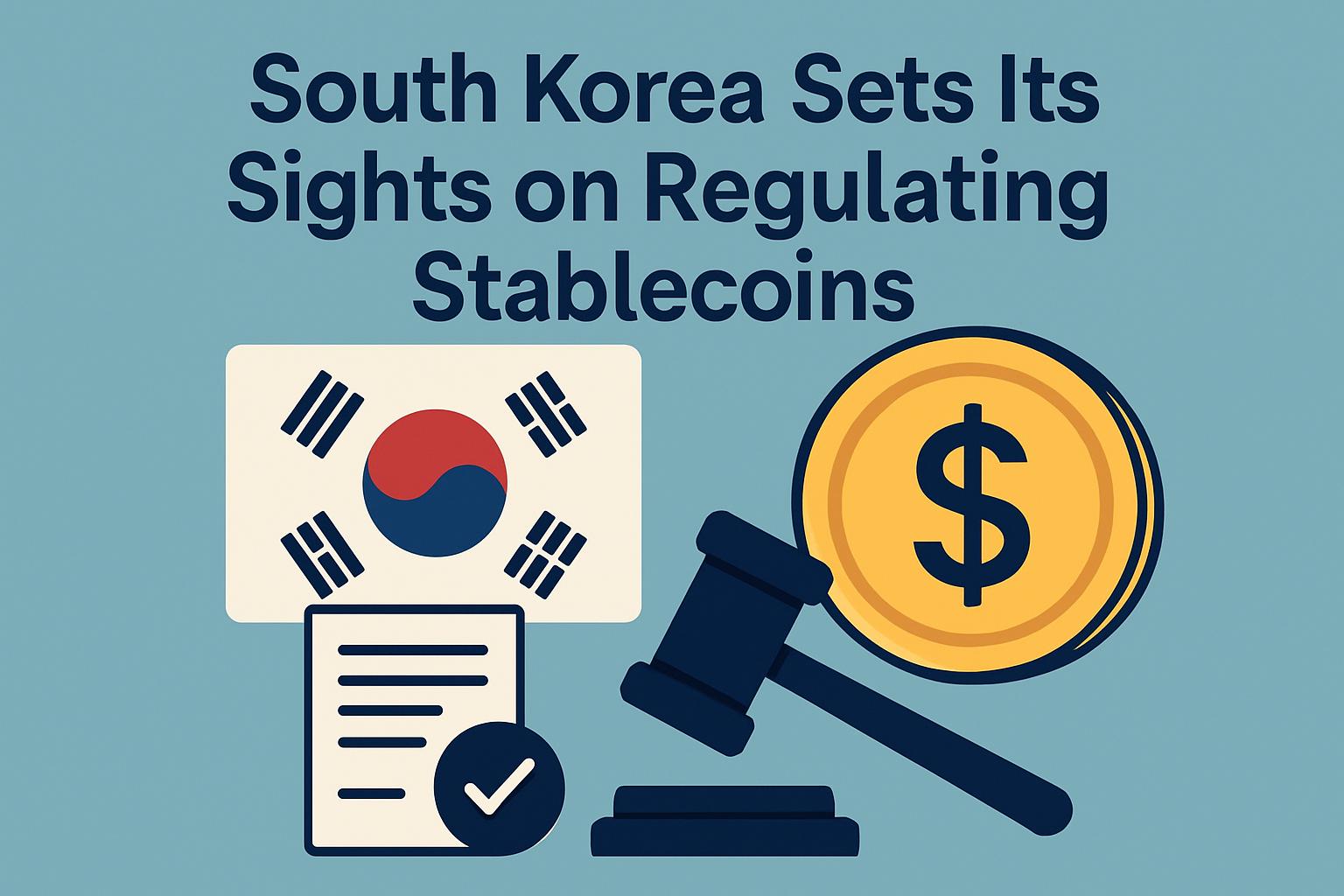Stablecoins have become a cornerstone of the cryptocurrency market, acting as a bridge between the volatile world of digital assets and traditional fiat currencies. Their stability makes them a favored tool for both investors seeking refuge from crypto fluctuations and institutions looking for a reliable digital transaction medium. However, with increasing adoption, stablecoins are also facing mounting scrutiny from regulators wanting to address associated financial risks.
Redefining Stablecoins as Legal Tender in South Korea
In a notable regulatory shift, South Korea is planning to amend its Foreign Exchange Transactions Act. This move will effectively classify stablecoins as “payment methods” with the same regulatory status as traditional legal tender like banknotes and coins. This legislative effort is spearheaded by Park Seong-hoon, a member of the ruling party, reflecting the country’s urgency in addressing stablecoin regulation.
- Legal Recognition: The amendment will officially recognize stablecoins as payment methods under the Foreign Exchange Transactions Act.
- Equal Regulation: Stablecoins will be subject to similar legal standards as existing fiat currencies.
- Closing Gaps: The proposed changes aim to fill the current regulatory void in digital asset management.
Motivations Behind Korea’s Regulatory Push
South Korea’s regulatory initiatives aren’t happening in a vacuum. They’re driven by dual concerns over financial security and consumer protection. As more entities engage in cross-border transactions using stablecoins, associated risks and regulatory loopholes have become increasingly apparent.
- Combating Illicit Activities: The goal is to prevent the misuse of stablecoins for money laundering and underground financial activities.
- Preventing Tax Evasion: By regulating stablecoins, the government aims to curtail their use as tax-evasion tools.
- Clarity in Law: A coherent legal framework will address the current ambiguity surrounding the definition and use of stablecoins.
- Ensuring Financial Stability: Integrating stablecoins into formal financial systems can mitigate systemic risks.
The Market Impact of New Regulations
If enacted, these regulations will significantly impact both stablecoin users and issuers. For users, the emphasis will be on improved transaction legitimacy and security. However, stablecoin issuers and crypto enterprises might face heightened compliance demands and operational costs.
Potential Benefits:
- Building Trust: Users and institutions may develop greater confidence in stablecoins.
- Consumer Protection: Legal recourse will become available in case of transactional disputes.
- Integration with Financial Systems: The regulation encourages the adoption of stablecoins into established financial frameworks.
Potential Challenges:
- Increased Compliance Costs: Organizations will need to allocate resources to meet new regulatory requirements.
- Risk to Innovation: Excessive regulation may stifle the vibrancy of new crypto ventures.
- Market Dynamics Shift: Regulations could alter the liquidity and competitive landscape of stablecoins.
Balancing stability and innovation will be a crucial task for regulators as they navigate these changes.
A Global Regulation Perspective
South Korea is not alone in its regulatory endeavors. The European Union has enacted the Markets in Crypto-Assets Regulation (MiCA), a framework with detailed stipulations for stablecoins. Meanwhile, in the United States, lawmakers are exploring various bills focused on stablecoin issuers and capital requirements.
Interestingly, South Korea’s strategy diverges from the approach of other nations. Instead of crafting new laws, it is incorporating stablecoin governance within its existing Foreign Exchange Transactions Act, showcasing a pragmatic and efficient regulatory mindset. This not only accelerates the regulatory process but also offers a model for other countries with established foreign exchange and financial legislation.
In an era where digital assets are swiftly integrating into mainstream finance, South Korea’s approach could serve as a valuable template for worldwide regulatory frameworks.

![[News] Bitcoin at a Turning Point? 10x Research Signals a Bullish Macro Shift Ahead](https://cryptoexplores.com/wp-content/uploads/2025/06/new20250616.jpg)
![[News] Binance Lists $HOME, the Gas-Free, Bridge-Free All-in-One DeFi App](https://cryptoexplores.com/wp-content/uploads/2025/06/news20250617.jpg)